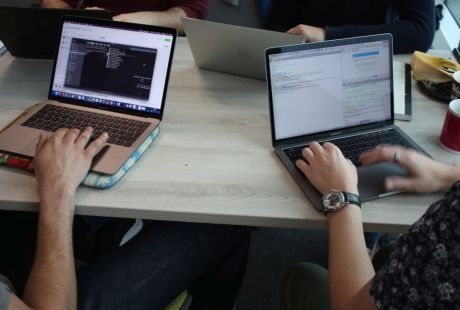

15 February 2019
2 min read
Students from across the south coast took part in a ‘hack event’ at the University’s Future Technology Centre this week to investigate data related to coastal deaths.
The event was held in collaboration with the RNLI with the aim of giving the organisation a better understanding of the causes of coastal death and methods of modelling this.
The students from Portsmouth, Southampton and Sussex universities, were part of DISCnet, a Centre for Doctoral Training in data intensive science, run through universities in the South-East Physics Network (SEPnet). They are carrying out research in astronomy and particle physics and this event allowed them to use data skills they have developed in their research and apply it to totally different data sets.
Around 160 people die every year on the UK coast, many of whom were never intending to enter the water. The RNLI has set itself an ambitious target of reducing coastal fatalities by 50 per cent by 2024.
We enjoyed working with the students and being able to provide them with real world data and problems to work on.
Julia Yates, Senior Research manager at the RNLI
It has collected data over a number of years relating to these fatalities and also to other incidents that resulted in the launch of a lifeboat. However, in general, this has involved either primary research including segmentation and narratives or secondary research on their existing and directly relevant data sets. What is less advanced is analysis of data to help them better explain causality and ultimately move towards predictive models for lifeboat incidents at strategic and tactical levels.
The students rapidly got to grips with the RNLI’s data and produced a wide variety of high quality outputs.
Gill Prosser, IPS Collaboration Manager in the University’s Institute of Cosmology and Gravitation
The students were asked:
- What data and techniques should we use to model the frequency and severity of coastal risk and to predict the areas where lifeboat launches or other interventions will be required to save life?
- How can we use data to model the changing risk in a coastal community within the next 15 years?
Julia Yates, Senior Research manager at the RNLI, said: “DISCNet students quickly grasped the challenge that the RNLI had posed and used their knowledge and skill to come up with a range of possible models to describe risk.
“We enjoyed working with the students and being able to provide them with real world data and problems to work on.”
Gill Prosser, IPS Collaboration Manager in the University’s Institute of Cosmology and Gravitation said: “The students rapidly got to grips with the RNLI’s data and produced a wide variety of high quality outputs.”
One of the students who took part in the day said: “I really enjoyed the challenge of quickly having to a grasp a data set and try and find something of use in it. I would be very keen for similar events as part of DISCnet in the future.”
